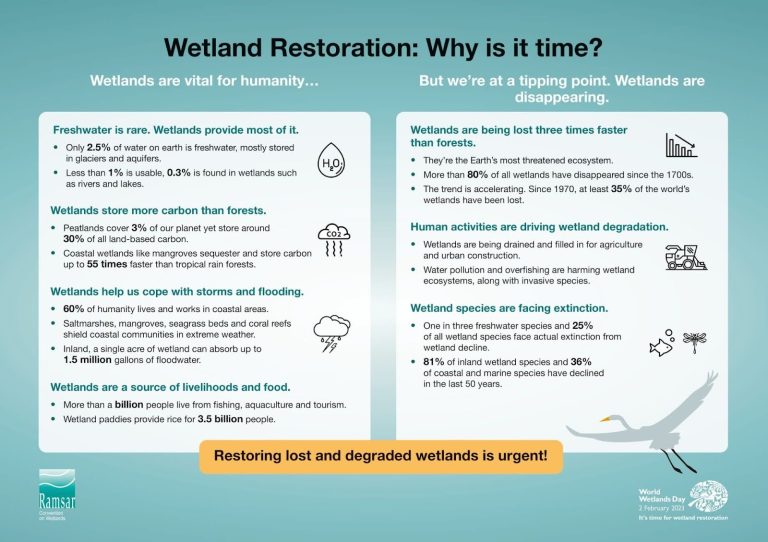In this Article
The Ramsar Convention on Wetlands provided policy recommendations to promote agricultural sustainability and proper use of wetlands
Image Credit: Ramsar Convention on Wetlands
While wetlands provide valuable services to agriculture such as the source of water for crops and livestocks, as habitat for aquaculture and rice production as well as supplying fertile soil, agricultural practices adversely affect them. Unsustainable agricultural practices and development include the increasing use of fertilizers and pesticides, drainage or conversion of wetlands to cultivated lands, and the disruption of the ecosystem brought by the use of heavy machinery or the presence of livestock.
Among all the ecosystems, wetlands have the fastest rates of deterioration, loss and decline. Agricultural practices negatively affect more than half of the Wetlands of International Importance. To address this concern, the Convention on Wetlands recommends the following: (1.) improve communication between the involved sectors to provide efficient techniques to shift from unsustainable practices; (2.) develop policies to address environmental issues brought on by agricultural practices and systems; (3.) ensure that the policies created by the sectors (i.e., water, agricultural, climate, environmental) are consistent in promoting wetlands management; and, (4.) employ the presented solutions for sustainable agricultural and wise use of wetlands.
Considering the role that wetlands play in maintaining and enhancing agricultural productivity, the agricultural sector should focus more on practices that use wetlands more wisely. On-farm conservation efforts include planting trees, allowing natural wet and dry cycles, and minimizing land disturbance.
Reference: Convention on Wetlands. (2022) Policy Brief No. 6: Transforming agriculture to sustain people and wetlands. Gland, Switzerland: Secretariat of the Convention on Wetlands. Retrieved March 7, 2023 from https://www.ramsar.org/sites/default/files/documents/library/rpb6_agriculture_e.pdf





